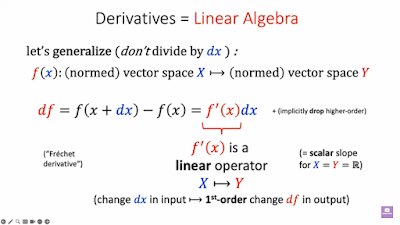Mithuna Yoganathan - Quantum Mechanics Course (and Vandana Shiva on Quantum Thinking)
Part 2:
If you are interested in her live course, fill out the form at https://forms.gle/KfQEwkh2XcKwBERm6 or go to the link in the YouTube video description.
Subscribe to The Looking Glass Universe.
See Psychophysics.
Here is Vandana Shiva's talk on Consciousness and Quantum Thinking:
Her PhD Dissertation was entitled Hidden variables and locality in quantum theory but all I have found is an abstract. It does look rather interesting:
The status of hidden variables in quantum theory has been debated since the 1920s. The author examines the no-hidden-variable theories of von Neumann, Kochen, Specker and Bell, and finds that they all share one basic assumption: averaging over the hidden variables should reproduce the quantum mechanical probabilities. Von Neumann also makes a linearity assumption, Kochen and Specker require the preservation of certain functional relations between magnitudes, and Bell proposes a locality condition. It has been assumed that the extrastatistical requirements are needed to serve as criteria of success for the introduction of hidden variables because the statistical condition is trivially satisfied, and that Bell's result is based on a locality condition that is physically motivated. The author shows that the requirement of weak locality, which is not physically motivated, is enough to give Bell's result. The proof of Bell's inequality works equally well for any pair of commuting magnitudes satisfying a condition called the degeneracy principle. None of the no-hidden-variable proofs apply to a class of hidden variable theories that are not phase-space reconstructions of quantum mechanics. The author discusses one of these theories, the Bohm-Bub theory, and finds that hidden variable theories that re all the quantum statistics, for single and sequential measurements, must introduce a randomization process for the hidden variables after each measurement. The philosophical significance of this theory lies in the role it can play in solving the conceptual puzzles posed by quantum theory.
Dec 1978; 205 p; Available from Canadian Theses on Microfiche Service, National Library of Canada, Ottawa, Canada K1A 0N4; Thesis (Ph.D.).
Subscribe to Wonderstruck Podcast with Elizabeth Rovere.
Detecting Single Photons with a Photomultiplier Tube
Subscribe to Huygens Optics.
Here's Sabine's Least Action Principle Video The Closest We Have to a Theory of Everything ∂S=0:
Subscribe to Sabine Hossenfelder.
And here's Veritasium's recent video:
Subscribe to Veritasium.
Here's Ben Krasnow explaining a better way to train boat crews:
8:18 On the explosion energy of a flash tube. This is a good example of a mathematical model. 10:48 The Capacitor bank design is another.
Subscribe to Applied Science.
Donna Strickland explains lasers five times:
Subscribe to Wired.
Donna Strickland's Nobel Prize lecture:
Last year Anne L'Huillier gave this Nobel Prize lecture on The route to attosecond pulses: Attosecond Pulse Train
Subscribe to Nobel Prize.
I remember really enjoying the Open University "Introduction to Applied Mathematics" course because it gave me a very good appreciation of how mathematical models "work". They don't actually describe the underlying system, instead, they describe the relations that you can observe between the parts of the system that are measurable in some quantitative way.
Nicholas Higham talking about the Princeton Companion to Applied Mathematics:
Subscribe to PUP.
Karl Friston on Cognition and Radical Enactivism:
Subscribe to Serious Science.
Here he is talking about The Free Energy Principle and Active Inference (and Markov Blankets which sound to me like some sort of Galois Connection between the inside and outside of a system.) The free energy principle "establishes that the dynamics of physical systems minimise a quantity known as surprisal (which is the negative log probability of some outcome); or equivalently, its variational upper bound, called free energy."
Subscribe to The Dissenter.
And here's a telescope which is actually a software package!
Subscribe to Space Mog.



Comments
Post a Comment